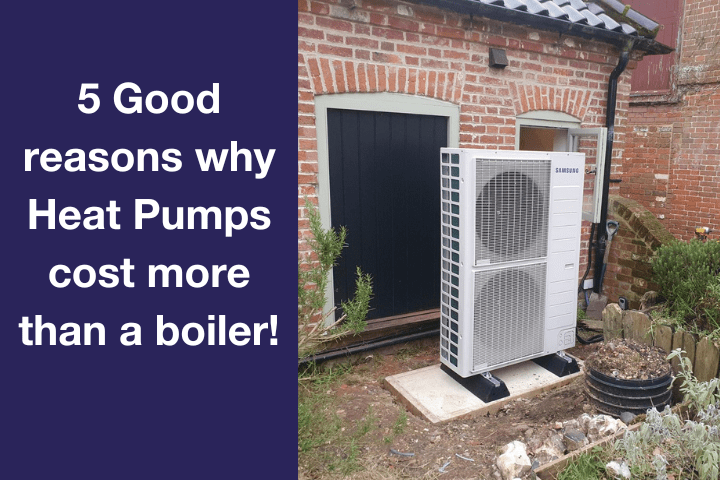Air Source Heat Pumps (ASHPs) & Ground Source Heat Pumps (GSHPs): All you need to know
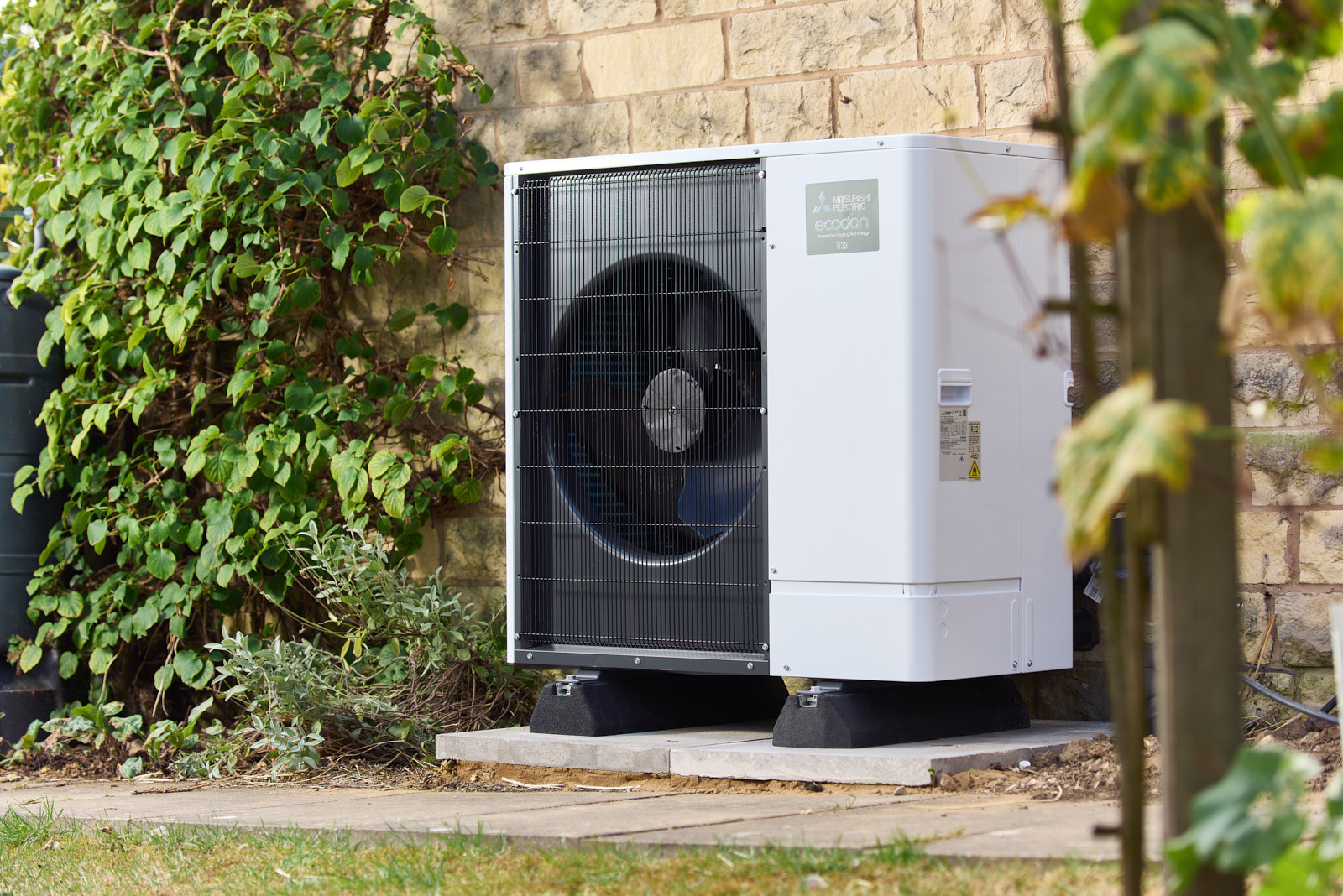
When looking for an energy-efficient and sustainable heating solution, homeowners often find themselves at the crossroads of choosing between air source heat pumps (ASHP) and ground source heat pumps (GSHP).
These innovative technologies enable us to heat our homes and provide hot water, offering not only environmental benefits but also potential cost savings.
In this comprehensive guide, we’ll delve deep into the intricate details of ASHP and GSHP, equipping you with the knowledge needed to make an informed decision tailored to your unique needs.
Table of Contents
1. Understanding Ground Source Heat Pumps (GSHP)
How GSHPs Work
Ground source heat pumps can be usually installed horizontally, but the pipes can be laid vertically if you are short on space. You will also need to check that the ground is suitable for digging,
Ground source heat pumps tap into the Earth’s natural thermal energy by circulating glycol (antifreeze) through a buried collector pipe, or ground loop, positioned approximately one meter below the surface. The heat absorbed from the ground is then concentrated into the heat pump through a heat exchanger, providing a sustainable source of energy for residential and commercial spaces.
You will also need space inside to fit the heat pump unit – this is about the size of a fridge.
Once installed, you will not be able to see the GSHP pipework, and you will still be able to use your garden just as you did before.
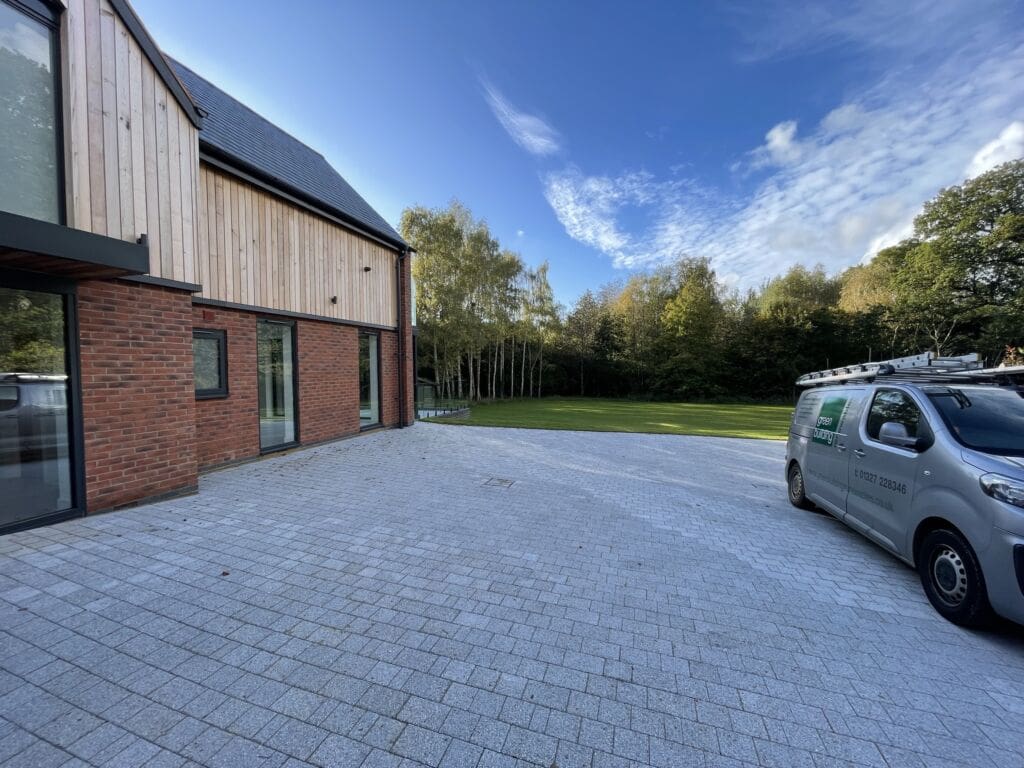
Compatible Heat Systems
GSHPs offer the ability to power both underfloor heating and wall-mounted radiators. This flexibility allows homeowners to choose the heating system that best suits their preferences and spatial constraints.
Efficiency at its Core
GSHPs shine in terms of efficiency, converting 1 kilowatt of electricity into an impressive 4.5 kilowatts of heat. This outstanding 450% efficiency significantly outperforms traditional fossil fuel appliances, making GSHPs an attractive option for those seeking to reduce their carbon footprint.
When comparing GSHPs and ASHPs efficiency, it is important to remember that the colder the source (air/ground) the harder the heat pump needs to work. This means we need to take into consideration where the house is located and what time of year it is.
As GSHPs use the heat from the ground, it will never drop below freezing – most ground temperatures will stay at about 5 degrees throughout the year. This means that when it gets really cold, GSHPs tend to be more efficient than an ASHP.
Cost Considerations
While the benefits of GSHPs are substantial, it’s essential to consider the financial aspect.
Prices for GSHP installations start at around £16,000 +VAT for smaller properties. However, the long-term economic outlook is favourable, with a typical lifespan of approximately fifteen years, but they can last 50.
The installation process may require a significant amount of space, equivalent to half a football pitch for a standard three-bedroom home.
Advantages of GSHP
- Year-round Reliability: GSHPs offer consistent heat throughout the year with minimal maintenance requirements. As the collector pipe is not susceptible to outside changes in temperature, you don’t need to worry about checking it.
- Significant Cost Savings: Especially for properties reliant on oil or LPG fuel. GSHP installations can lead to major cost savings, particularly when combined with solar panels.
- Government Incentives: GSHPs qualify for government incentives, including the Boiler Upgrade System (BUS), providing up to £6,000 in financial support for installation.
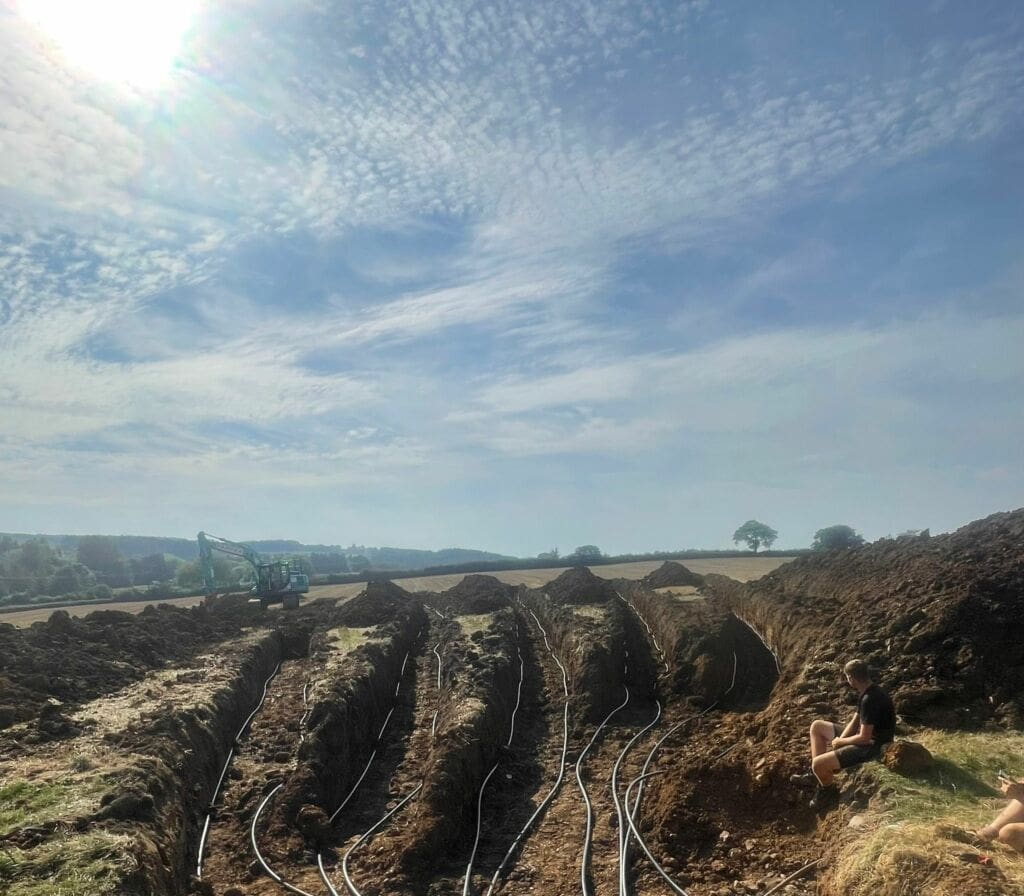
2. Exploring Air Source Heat Pumps (ASHP)
The Mechanics of ASHP
Air source heat pumps harness energy from the outside air by converting low-grade heat into usable energy.
This process involves passing the air through a compressor, effectively raising its temperature.
Remarkably, ASHPs can operate efficiently even in colder temperatures, with a Coefficient of Performance of 340% on average, maintaining their efficacy down to -20℃.
Assessing Potential Savings
The amount of money saved by installing ASHPs depends on various variables, including property size, insulation quality, current radiator system size, and the presence of underfloor heating.
Our team at GBR is able to provide a personalised estimate for you based on these factors.
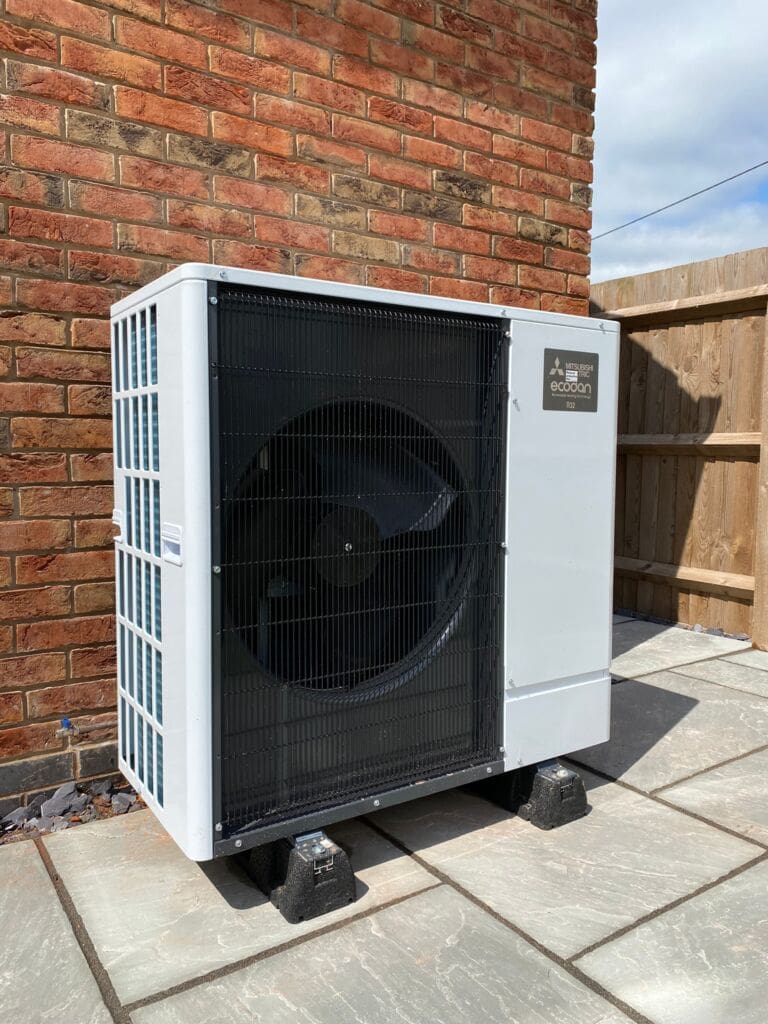
Advantages of ASHP
- Compact and Non-Disruptive: ASHP installations are more compact and less disruptive than their ground source counterparts, making them suitable for properties with limited space.
- Impressive Energy Efficiency: ASHPs boast remarkable energy efficiency, converting 1 kilowatt of electricity into 340 kilowatts of heat (340% efficiency), surpassing traditional combination boilers (which are about 90%).
- Government Grants: ASHP installations are eligible for government grants, particularly for those transitioning from fossil fuel energy systems. Homeowners with existing solar panels can further capitalize on free energy to power their heat pumps.
Also, if you already have solar panels on your property, you can use this free energy to power your heat pump!
Choosing Between ASHP and GSHP
The decision-making process between ASHP and GSHP involves careful consideration of a number of factors.
Primary among these is the available space, but other aspects, such as installation complexity, efficiency, and potential cost savings, also play crucial roles.
For a more in-depth understanding, our video guide provides valuable insights.
3. Ready to Take the Next Step?
As accredited BUS installers for both ASHP and GSHP, we are equipped to assist you through the grant application process. To move forward with either system, begin by checking out more on our heat pump pages.
Here at Green Building Renewables, we are currently install Mitsubishi, Vaillant, Samsung and Grant Air Source Heat Pumps and Kensa Evo Ground Source Heat Pumps.
The team at Green Building Renewables is here to help you through the process of switching to renewable energy, get in touch today!


